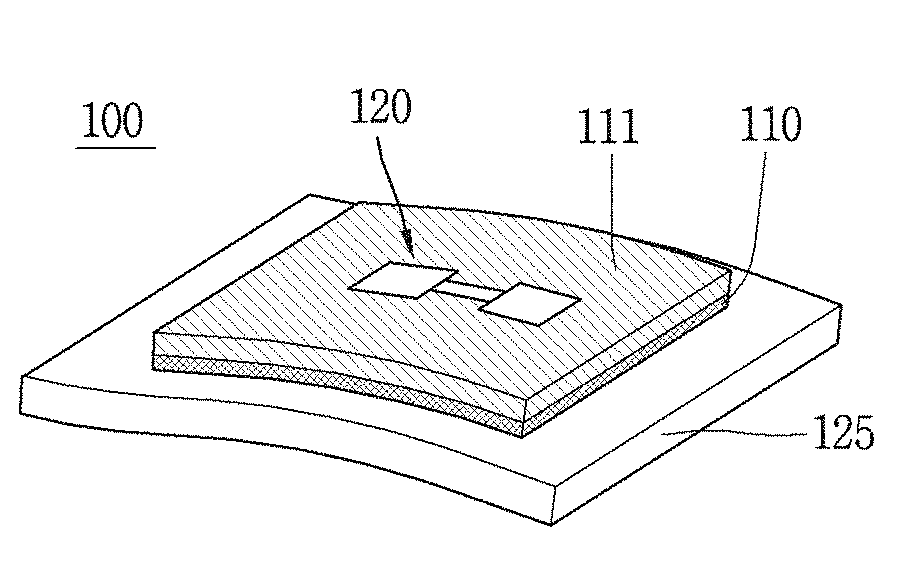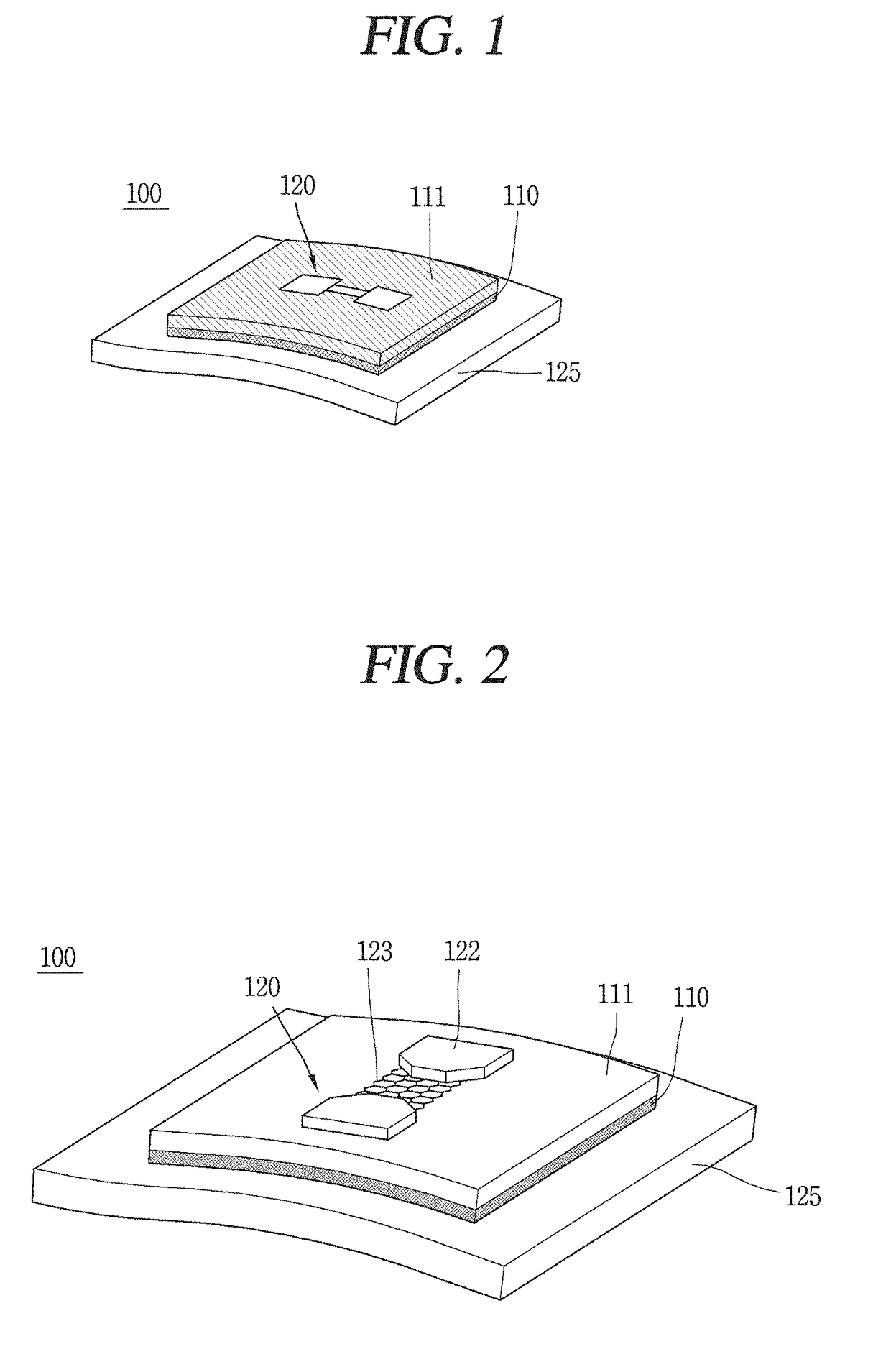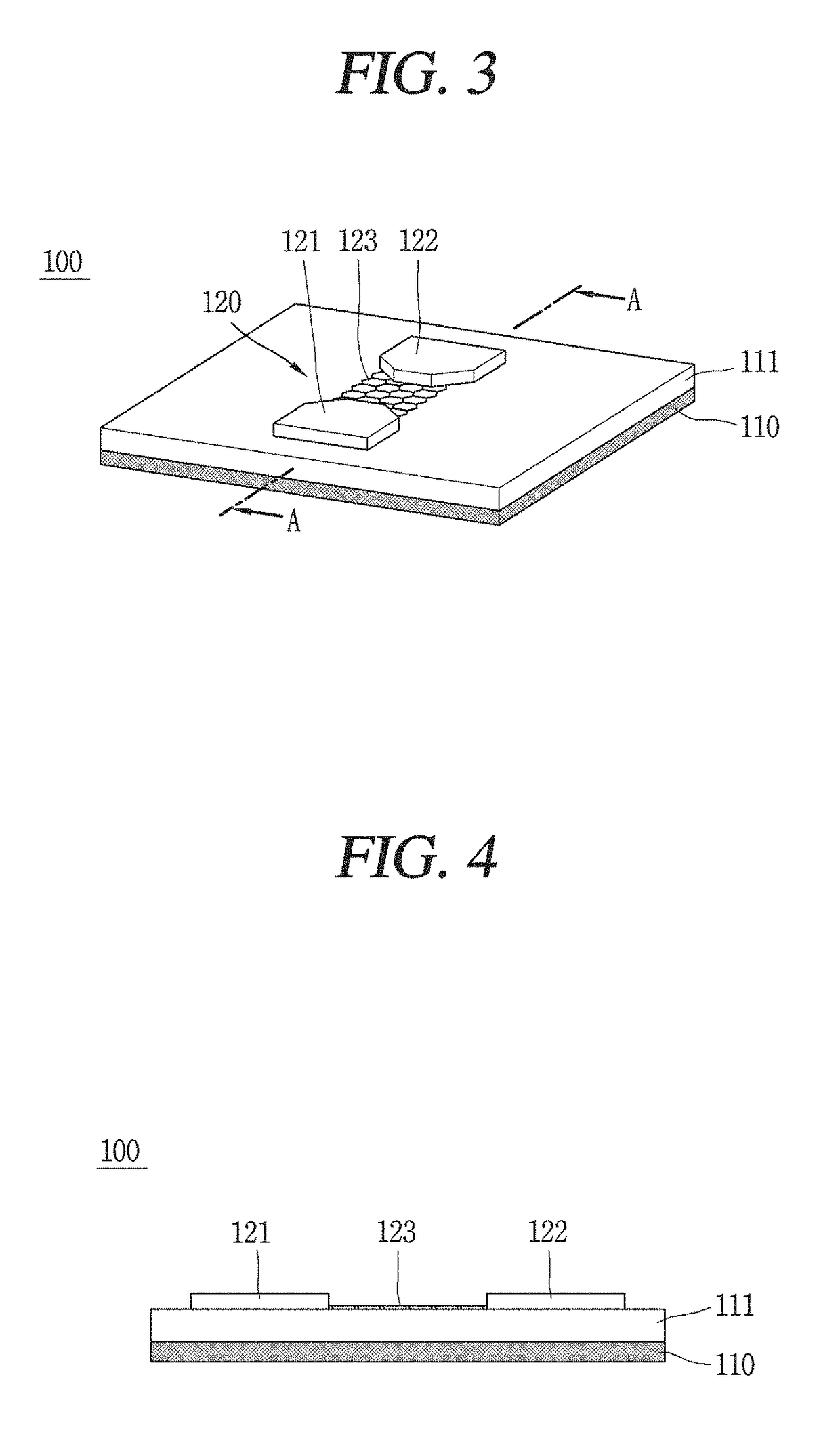Radiation detector and method for manufacturing same
a technology of radiation detector and manufacturing method, which is applied in the field of radiation detector, can solve the problems of high fabrication cost, conventional radiation detector, and difficult to implement a large area, and achieve the effect of reducing fabrication cost and fabrication time, and small thickness
- Summary
- Abstract
- Description
- Claims
- Application Information
AI Technical Summary
Benefits of technology
Problems solved by technology
Method used
Image
Examples
Embodiment Construction
[0041]Hereinafter, embodiments of the present invention will be explained in more detail with reference to the attached drawings.
[0042]For the sake of brief description with reference to the drawings, the same or equivalent components will be provided with the same reference numbers, and description thereof will not be repeated. A singular expression in the specification includes a plural meaning unless it is contextually definitely represented.
[0043]FIGS. 1 and 2 show a structure of a radiation detector 100 according to the present invention. FIG. 1 is a conceptual view showing that a radiation detector of the present invention is coupled to a substrate 125, and FIG. 2 is a perspective view showing a structure of the radiation detector.
[0044]The substrate 125 generally means a silicon oxide substrate formed of SiO2, but may be a substrate having a flexible property or various types of substrates on which the radiation detector 100 is to be positioned. Alternatively, the substrate 1...
PUM
 Login to View More
Login to View More Abstract
Description
Claims
Application Information
 Login to View More
Login to View More - R&D
- Intellectual Property
- Life Sciences
- Materials
- Tech Scout
- Unparalleled Data Quality
- Higher Quality Content
- 60% Fewer Hallucinations
Browse by: Latest US Patents, China's latest patents, Technical Efficacy Thesaurus, Application Domain, Technology Topic, Popular Technical Reports.
© 2025 PatSnap. All rights reserved.Legal|Privacy policy|Modern Slavery Act Transparency Statement|Sitemap|About US| Contact US: help@patsnap.com



